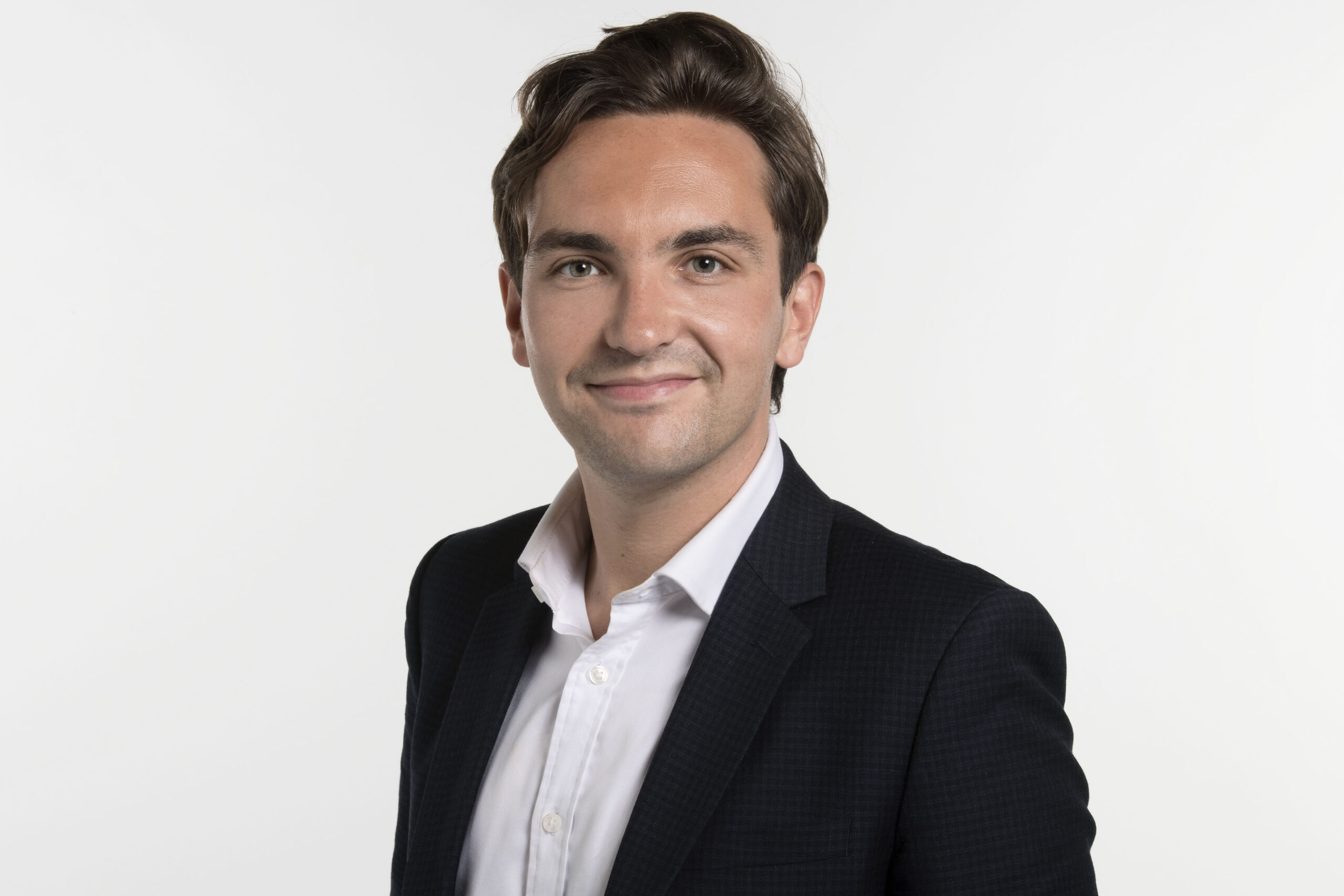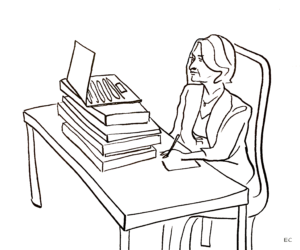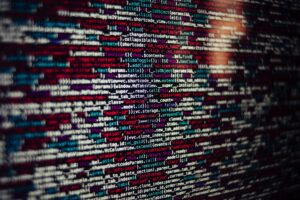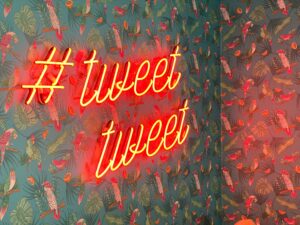
Newsnight’s policy editor Lewis Goodall. Image: Sky News
Jake Helm speaks to the BBC’s Lewis Goodall about social media, impartiality, and the changing face of journalism.
Lewis Goodall covers politics, policy, and economics for the BBC as Newsnight’s policy editor. He was a political correspondent for Sky News until 2019.
Goodall’s prolific use of social media – with almost 40,000 tweets since 2011 – has led to him amassing over 200,000 followers on Twitter. From reporting on the A-level algorithm to analysing the Spring Budget, he uses Twitter to connect with his audience and impart his assessments of the political landscape.
How do you think social media has changed the face of journalism?
It has transformed everything. Twitter is massively important in terms of political players and public policy players. When the royal family makes an announcement or when an MP declares how they are going to vote on Brexit, it’s on Twitter. So, Twitter has become not just a medium but an arena – the arena – and that means journalists can use it to see how the players are engaging with each other.
Sometimes you will get politicians having a proper ding-dong on Twitter, which is of political importance and news value. The idea that you could just withdraw from it and say: “We’re not interested in this,” is absurd. Even if you don’t tweet, you have to observe.
Do you think that social media has affected the relationship journalists have with their audience?
For people like my nan or that sort of age group, it probably hasn’t affected our relationship with them at all. But for young people, it has transformed it. I know a lot of students follow me. How else are they going to hear from me other than on Twitter?
“Journalism shouldn’t exist like a museum piece, to be stored away in a vault. It demands to be consumed”
As much as I would love them to watch Newsnight, they are probably not going to watch it in a linear fashion – they may however watch parts when I post online.
Journalism shouldn’t exist like a museum piece, to be stored away in a vault. It demands to be consumed. If social media allows audiences to consume news, then it’s vital.
How do you use social media to your advantage?
There are three things that I think social media is good for, for a journalist. First, it allows people to consume your stories. Second, it acts as an arena and shapes the conversation. And thirdly, for newsgathering.
How do you use social media for newsgathering?
Social media gives you access to groups of people that you would never usually come into contact with. I sometimes wonder how my older colleagues did journalism without it. As a journalist, the fundamental question is: “What is really going on?” You’re hearing what politicians, press officers, and government departments are telling you. But what’s really going on for people on the ground – teachers, students, academics, nurses? Social media puts you in direct contact with those people.
Do you think it’s important now that journalists build a brand on social media?
I think that’s for the individual journalist to decide. But it’s always important to remember that, while you may post from a personal account, you’re never really tweeting in a personal capacity.
“You need to balance what people expect from you as a journalist with what your editor expects”
You might have a brand but ultimately the brand that’s most important is the programme or organisation you’re working for. You need to balance what people expect from you as a journalist with what your editor expects.
Do you feel like social media is a threat to quality journalism because there’s such a demand to get something out fast?
It has certainly been fuelled and exacerbated by social media because there is an intensified competition between journalists and pressure to perform. I think there are two ways in which social media can be used at its weakest – I’ve been guilty of them myself. The first is ending up being a bit breathless. It’s when you’re trying to do things quickly and don’t stop to think: “Is this the biggest thing ever?” before posting it. The second is using social media like a notepad. You say “I’m hearing this,” or “whispers of this”, which can later transpire to not be true. It makes you look silly.
When have you looked silly on social media?
I’m not just saying this but I can’t think of anything off the top of my head. It certainly has happened. On a busy day, for instance Budget Day, you can send out over 100 tweets. As humans, of course we make mistakes.
BBC employees are sometimes accused of bias on social media – as a BBC employee, what’s your view on bias?
I don’t worry about bias but I worry about impartiality. The BBC has its rules on it and the director-general is absolutely right to say impartiality is at the centre of what the BBC does. In the fragmented news landscape that we increasingly exist in, I think impartiality is more important than ever.
“In the fragmented news landscape that we increasingly exist in, I think impartiality is more important than ever”
Do you worry about being partial?
Impartiality means we are always in search of the truth, and I believe absolutely, passionately in the truth. But I don’t think that’s an subjective thing. To be frank with you, I am not overly concerned about impartiality because I would never say anything I couldn’t substantiate or back up with evidence. Young audiences turn to journalists because the world is so bloody complicated. People aren’t looking for your view but for your assessment, which is informed by evidence, your knowledge, and experience.
How do you respond to criticisms of impartiality?
Some people try to align scrutiny with partiality – they try and say that scrutiny and partiality are the same things. But that couldn’t be further from the truth. Impartiality is scrutiny. That’s what the BBC is required to do. Some say even asking the question is itself biased. They’re wrong – not asking the question is partial. If you back away from asking something because you’re worried about being labelled biased, that is actually partial because you’re letting down the viewer and your obligation to be impartial.
Do you feel pressure to adapt depending on the medium?
There’s no pressure, just a need. No successful journalist in the modern age just does one thing alone. You need to do a bit of everything these days because audiences’ preferences have become so variegated.
“The hardest thing is switching off. Twitter is like a news buffet; you’re constantly grazing and it’s so easy to graze”
Are you tempted to join TikTok?
I would like to but I feel like there’s a slight self-preservation thing. I spend quite a lot of time on social media. I feel like if I expanded more, my screen time would continue to escalate. But I’m always willing to adapt.
Do you find social media overwhelming?
The hardest thing is switching off. Twitter is like a news buffet; you’re just constantly grazing and it’s so easy to graze. Sometimes I’m on it for 10 minutes and I end up thinking: “Wow I could’ve read a great long-read in that time.” But it is just part of the job description nowadays and I can’t imagine doing it any other way.
“Social media will play a huge part in that alongside mediums we don’t even know exist yet”
What do you think the future has in store for social media and journalism?
I’m not sure what’s going to happen next week, let alone the future. I know that broadcast journalists will have to rethink how we deliver TV news because people don’t watch it religiously as they once did. Social media will play a huge part in that alongside mediums we don’t even know exist yet.














